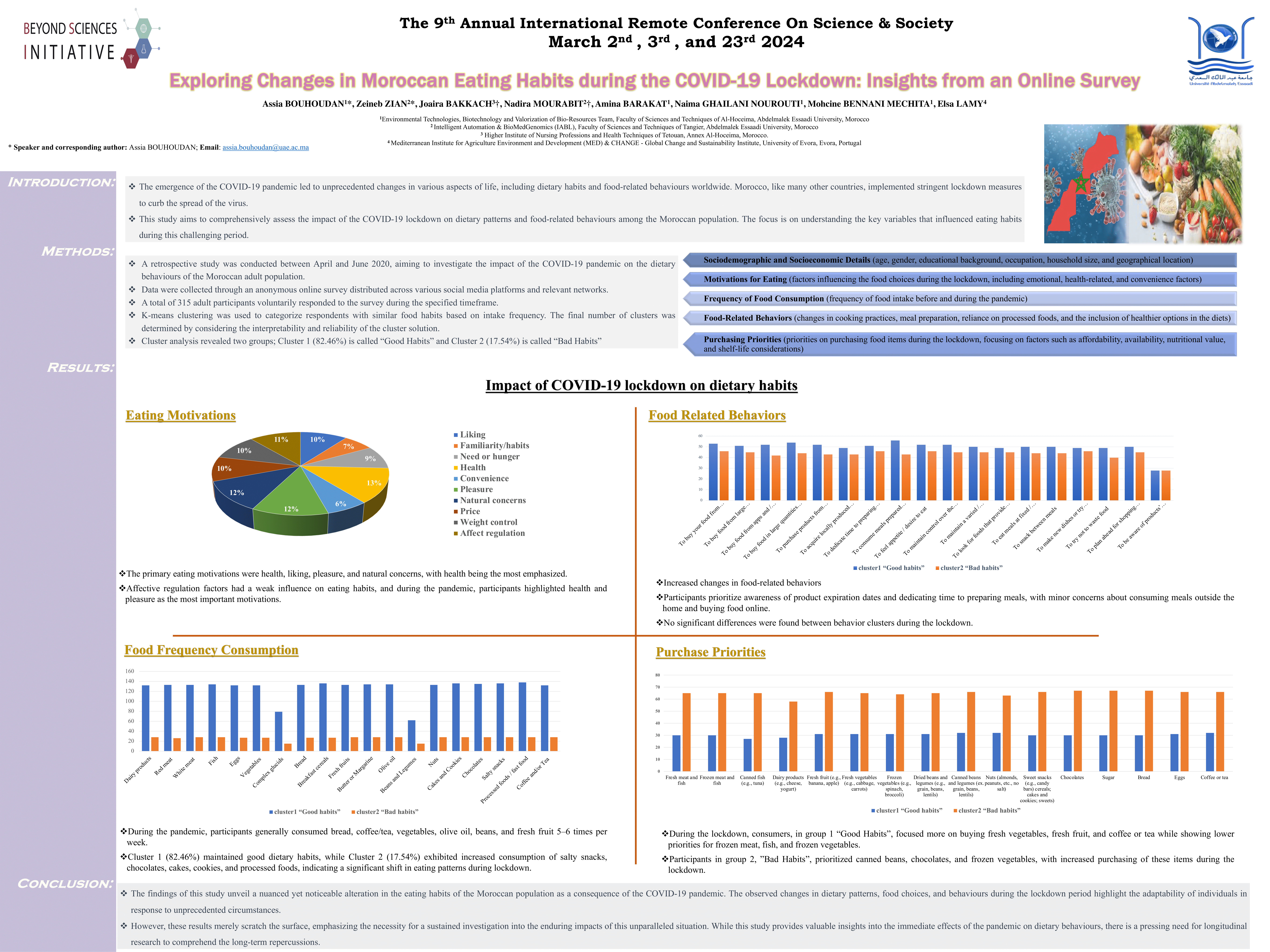Assia BOUHOUDAN
Conference 2024 Poster
Poster Title
Exploring Changes in Moroccan Eating Habits during the COVID-19 Lockdown: Insights from an Online Survey
Authors and Affiliations
Assia BOUHOUDAN1*, Zeineb ZIAN2*, Joaira BAKKACH3†, Nadira MOURABIT2†, Amina BARAKAT1, Naima GHAILANI NOUROUTI1, Mohcine BENNANI MECHITA1, Elsa LAMY4
1 Environmental Technologies, Biotechnology and Valorization of Bio-Resources Team, Faculty of Sciences and Techniques of Al-Hoceima, Abdelmalek Essaadi University, Morocco
2 Intelligent Automation & BioMedGenomics (IABL), Faculty of Sciences and Techniques of Tangier, Abdelmalek Essaadi University, Morocco
3 Higher Institute of Nursing Professions and Health Techniques of Tetouan, Annex Al-Hoceima, Morocco.
4 Mediterranean Institute for Agriculture Environment and Development (MED) & CHANGE – Global Change and Sustainability Institute, University of Evora, Evora, Portugal
Abstract
Background
This study sought to comprehensively examine the impact of the COVID-19 pandemic on dietary patterns and food-related behaviors within the Moroccan populace during the lockdown, with a focus on identifying key variables influencing their eating habits.
Methods
A retrospective study collected data through an anonymous online survey from April to June 2020, involving 315 adult participants. The survey, available in Arabic, French, and English, comprised five sections: sociodemographic and socioeconomic details; motivations for eating; frequency of food consumption; food-related behaviors; and purchasing priorities. Statistical analysis utilized SPSS software version 26.0.
Results
Findings revealed that the primary shifts in eating motivations attributed to the pandemic were centered around health and pleasure. Cluster analysis distinguished two groups: Cluster 1, exhibiting “good habits,” demonstrated unchanged food consumption frequency during lockdown, while Cluster 2, with “bad habits,” displayed increased consumption of salty snacks, chocolates, cakes and cookies, and processed foods (p < 0.001) compared to pre-pandemic times. Notably, Cluster 2 exhibited heightened priority in purchasing canned beans and legumes, chocolates, and frozen vegetables during the lockdown period (p= 0.001, p= 0.005, and p= 0.02, respectively).
Conclusions
These results indicate a subtle shift in eating habits among the Moroccan population due to the pandemic. Further research is warranted to explore the lasting effects of this unprecedented situation.


An interesting review of eating habits during a very unique period in time